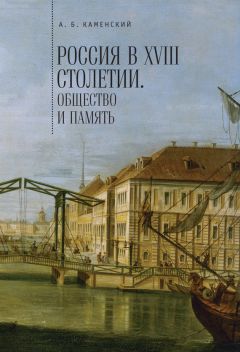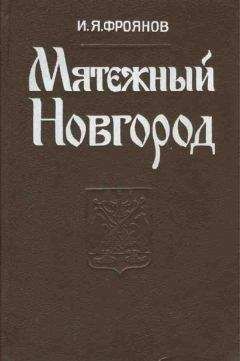Николай Копосов - Хватит убивать кошек!
17
См., например, исследование Вольфа Лепениса о генезисе современной социологии в связи с ее отношениями с литературой: Lepenies W. Between Literature and Science: The Rise of Sociology. Cambridge: Cambridge U. P., 1988.
18
См. главы 11, 14, 15 и 16.
19
Критику семиологической триады см.: Rastier F. La triade sémiotique, le trivium et la sémantique linguistique // Nouveaux actes sémiotiques. № 9. 1990. P. 5–39.
20
О лингвистическом повороте в историографии, где он проявился в наибольшей степени, см.: Modern European Intellectual History. Reappraisals and New Perspectives / Ed. by D. La Capra, S. L. Kaplan. Ithaca; London: Cornell U. P., 1982; Partner N. F. Making Up Lost Time: Writing on the Writing of History // Speculum. Vol. 61. № 1. 1986. P. 90–117; Toews J. W. Intellectual History after the Linguistic Turn. The Autonomy of Meaning and Irreducibility of Experience // The American Historical Review. Vol. 92. № 4. 1987. P. 879–907; Ankersmit F. R. Historiography and Postmodernism // History and Theory. Vol. 28. № 2. 1989. P. 137–153; Jacoby R. A New Intellectual History? // The American Historical Review. Vol. 97. № 2.1992. P. 405–424; La Capra D. Intellectual History and Its Ways // Ibid. P. 425–439; Eley G. De l’histoire sociale au ‘tournant linguistique’ dans l’historiographie anglo-américaine des années 1980 // Genèses. № 7. 1992. P. 163–193; A New Philosophy of History / Ed. by F. Ankersmit, H. Kellner. London: Reaction Books, 1995; Noiriel G. La «crise» de l’histoire? P. 126–144; Iggers G. G. Zur ‘Linguistischen Wende’ im Geschichtsdenken und in der Geschichtsschreibung // Geschichte und Gesellschaft. Bd. 21. 1995. P. 557–570; Munslow A. Deconstructing History. London; New York: Rout-ledge, 1997. Укажем и некоторые примеры исследований других социальных наук в русле лингвистического поворота: Brown R. H. A Poetic for Sociology. Towards a Logic of Discovery for the Human sciences. Cambridge; London; New York: Cambridge UP., 1977; Writing Culture. The Poetics and Politics of Ethnography / Ed. by J. Clifford, G. E. Marcus. Berkeley: University of California Press, 1984; The Rhetoric of the Human Sciences / Ed. by J. S. Nelson, A. Megill, D. N. McCloskey. Madison: The University of Wisconsin Press, 1987; Rhetoric in the Human sciences / Ed. by H. W. Simons. London: Sage Publications, 1989; Atkinson P. The Ethnographic Imagination. Textual Constructions of Reality. London; New York: Routledge, 1990.
21
См., например, анализ становления жанров позитивистской историографии: Noiriel G. La «crise» de l’histoire?..
22
В классической работе X. Уайта, открывшей лингвистический поворот в американской историографии, показана связь между типичными для историков и философов истории XIX в. фигурами мысли и риторическими тропами. Марксизм, например, интерпретируется X. Уайтом как типичный случай метонимического мышления, иными словами, подстановки части за целое при анализе социальной системы (White Н. Metahistory. The Historical Imagination in Nineteenth-Century Europe. Baltimore; London: The John Hopkins U. P., 1973. Русский перевод: Уайт X. Метаистория. Историческое воображение в Европе XIX века. Екатеринбург: Изд-во Уральского университета, 2002).
23
См., например: Gallie W. B. Philosophy and the Historical Understanding. New York: Schoken Books, 1964; Danto A. Analytical Philosophy of History. Cambridge: Cambridge U. P., 1965 (русский перевод: Данто А. Аналитическая философия истории. М.: Идея-Пресс, 2002); White М. Foundations of Historical Knowledge. New York: Harper and Row, 1965; Mink L. O. The Autonomy of Historical Understanding // History and Theory. Vol. 5. № 1. 1965. P. 24–47; Idem. Narrative Form as a Cognitive Instrument // The Writing of History. Literary Form and Historical Understanding / Ed. by R. H. Canary, H. Kozicki. Madison: The University of Wisconsin Press, 1978. P. 129–149; Louch A. R. History as Narrative // History and Theory. Vol. 8. № 1. 1969. P. 54–70; Veyne P. Comment on écrit l’histoire. Essais d’épistémologie. Paris: Seuil, 1971; White H. The Question of Narrative in Contemporary Historical Theory // History and Theory. Vol. 23. № 1. 1984. P. 1–33; Carr D. Time, Narrative and History. Bloomington: Indiana U. P., 1986; Ricceur P. Temps et récit. Paris: Seuil, 1983–1985. Vol. 1–3.
24
P. Козеллек подчеркивал относительную независимость описания структур от рассказа о событиях в истории, но не углубился в исследование конкретных дескриптивных механизмов (Koselleck R. Vergangene Zukunft. Zur Semantik geschichtlicher Zeiten. Frankfurt am Main: Suhrkamp, 1979. S. 105). Ф. Kappap подчеркивал различие между описанием и повествованием в историографии (Canard Ph. Poetics of the New History. French Historical Discourse from Braudel to Chartier. Baltimore; London: The John Hopkins U. P., 1992. P. 36–47). См. также: Newman F. D. Explanation by Description. An Essay on Historical Methodology. The Hague; Paris: Mouton, 1968.
25
Barthes R. Le discours de l’histoire // Social Science Information. Vol. 6. № 4. 1967. P. 65–75.
26
Ср. эффект «пребывания там», обнаруженный К. Гирцем в работах крупнейших антропологов от Дюркгейма до Леви-Стросса: Geertz C. Works and Lives. The Anthropologist as Author. Cambridge; Oxford: Polity Press; Blackwell, 1988.
27
Rancière J. Les mots de l’histoire. Essai de poétique du savoir. Paris: Seuil, 1992. P. 21, 33–34.
28
Carrard Ph. Poetics of the New History.
29
Gossman L. History and Literature. Reproduction and Signification // The Writing of History… P. 16–17.
30
Обзор использования метафор для репрезентации истории см.: Demandt A. Metaphern für Geschichte. Sprachbilder und Gleichnisse im historisch-politischen Denken. München: Beck, 1978.
31
Kellner H. Language and Historical Representation. Getting the Story Crooked. Madison: The University of Wisconsin Press, 1989. P. 8. См. также анализ Кельнером метафорических структур исторической мысли Ф. Броделя (Ibid. Р. 153–187). О роли метафор (в частности, «метафор пути» — своего рода имплицитных теорий об устройстве мира) в социологическом дискурсе см.: Brown R. H. A Poetic for Sociology… P. 77–171.
32
Geschichtliche Grundbegriffe. Historisches Lexikon zur politisch-sozialen Sprache in Deutschland / Hrsg. von O. Brunner, W. Conze, R. Koselleck. Stuttgart: Klett, 1972–1993. Bde 1–8; Koselleck R. Vergangene Zukunft…; Historische Semantik und Begriffsgeschichte / Hrsg. von R. Koselleck. Stuttgart: Klett, 1979; Richter M. The History of Political and Social Concepts. A critical Introduction. New York; Oxford: Oxford U. P., 1995; The Meaning of Historical Terms and Concepts: New Studies on Begriffsgeschichte / Ed. by H. Lehmann, M. Richter. German Historical Institute. Occasional paper № 15. Washington, 1996.
33
Так, Ф. Анкерсмит подчеркивал, что между организацией текста и живописью имеется непосредственное структурное сходство (Ankersmit F. R. Statements, Texts and Pictures // A New Philosophy of History / Ed. by F. Ankersmit, H. Kellner. P. 212–240). E. Топольски говорил об исторических образах, выполняющих в историческом дискурсе организующую функцию (Topolski J. A Non-Postmodernist Analysis of Historical Narratives // Historiography between Modernism and Postmodernism. Contributions to the Methodology of the Historical Research / Ed. by J. Topolski. Amsterdam, Atlanta: Rodopi, 1994. P. 16, 43). Подробнее эта тема рассмотрена в моей книге «Как думают историки».
34
Ricoeur P. Temps et récit.
35
Grenier J.-Y. Expliquer et comprendre. La construction du temps de l’histoire économique // Les formes de l’expérience. Une autre histoire sociale / Pub. par B. Lepetit. Paris: A. Michel, 1995. P. 227–251; Хапаева Д. Р. Время космополитизма. Очерки интеллектуальной истории. СПб.: Изд-во журнала «Звезда», 2002 C. 124–129, 166–193.
36
Black М. Models and Metaphors. Ithaca, London: Cornell U. P., 1962; Lakoff G., Johnson M. Metaphors We Live By. Chicago, London: The University of Chicago Press, 1980.
37
Таков, например, случай современного понятия истории (см. главу 11).
38
См. главу 5.
39
Nora P. Dix ans de Débat // Le Débat. № 60. 1990. P. 3–11.
40
Revel J. Une oeuvre inimitable // Espaces Temps. № 34/35. 1986. P. 14.
41
Debray R. Le pouvoir intellectuel en France. Paris: Ramsay, 1979; Hamon H., Rotman P. Les Intellocrates. Expédition en haute intelligentsia Paris: Ramsay, 1981. Аналогичные мотивы проявились в те же годы и у критиков школы «Анналов»: Coutau-Begarie Н. Le phénomène «Nouvelle Histoire». Stratégic et idéologic des nouveaux historiens. Paris: Economica, 1983; Dosse F. L’Histoire en miettes. Paris: La Découverte. 1987.
42
Stone L. The Revival of Narrative // Past and Present. № 85. 1979. P. 3–24.
43
Характерна с этой точки зрения намеченная в двух редакционных статьях программа обновления «Анналов»: Histoire et sciences sociales: un tournant critique? // Annales: Economies, Sociétés, Civilisations. Vol. 43. № 2. 1988. P. 291–294; Tentons l’expérience // Ibid. Vol. 44. № 6. P. 1317–1323.
44
Dosse F. L’Empire du sens. L’Humanisation des sciences humaines. Paris: La Découverte, 1995. Основные контуры новой парадигмы были намечены Марселем Гоше в 1988 г. (GaucheI М. Changement de paradigme en sciences sociales? // Le Débat. № 50. 1988. P. 165–170).
45
Charle C. Essai de bilan // Histoire sociale, Histoire globale? / Pub. par C. Charle. Paris: M. S. H., 1993. P. 209.
46
Gribaudi М., Blum A. Des catégories aux liens individuels: l’analyse statistique de l’espace social // Annales: Economies, Sociétés, Civilisations. Vol. 45. № 6. P. 1365–1402.
47
Grendi E. Micro-analisi e storia sociale // Quademi Storici. Vol. 35. 1972. P. 506–520.
48
Desrosières A. Intervention // Histoire sociale. P. 71.
49
Caron F. Introduction générale // Ibid. P. 19–20.
50
Noiriel G. Sur la «crise» de l’histoire. Paris: Belin, 1996.
51



